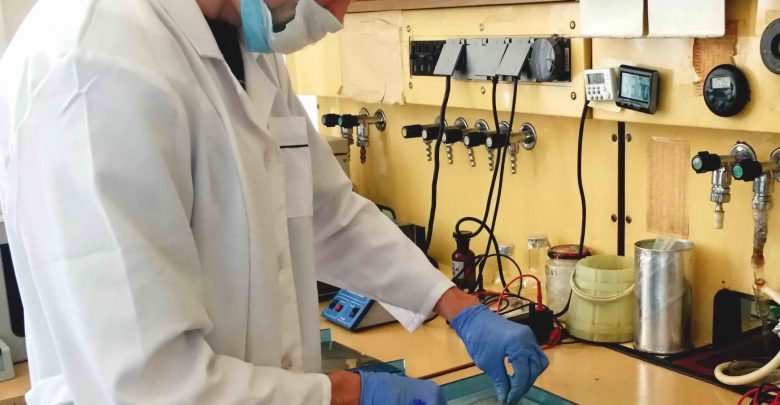Development and implementation in the Republic of Kazakhstan of molecular biotechnology for obtaining economically agricultural crops with increased productivity

At the M. Aitkhozhin Institute of Molecular Biology and Biochemistry in the laboratory of protein and nucleic acids is conducting a research project aimed at increasing the yield of food and feed crops using genomic technologies. The project manager is a leading scientist Zhigailov A.V.
Protein S6 (RPS6) is the only protein of the 40S subunits of eukaryotic ribosomes capable of phosphorylation. Ribosomes with phosphorylated RPS6 can selectively translate mRNAs that encode most of the proteins of the cellular translational apparatus.
The main feature of the approach that will be used to solve the tasks set in the project is that it is not aimed at regulating the processes of transcription, replication or cell division. The target is the process of ribosomogenesis and translation of mRNAs encoding components of the protein synthesis apparatus of cells.
In this project, first planned to mutate cDNA-gene ribosomal protein RPS6 protein kinase from Arabidopsis thaliana (AtRPS6K2) so that the mutated kinase, in contrast to the natural plant kinases were synthesized from activated and not require additional activation of kinases from the upper echelon. It is expected that plants with such a transgenic insert will have a higher productivity compared to the original unmodified plants. Therefore, plants should maximize their biomass only in conditions where they are fully provided with resources and favorable environmental conditions. In contrast, GM plant cells with increased expression of growth and division activator genes tend to continue to actively divide and grow even under conditions of limited resources, which negatively affects their resistance to stress.
Understanding the mechanism of RPS6K-mediated regulation of cellular processes will allow artificially regulating the growth and size of cells, and through this – increasing the biomass of plants and their productivity. In addition to this application, the project will investigate how the expression of constitutive active kinase of RPS6 protein will affect the phenotype and physiological parameters of plants, which will contribute to the fundamental study of mechanisms for regulating plant growth and development.
The technology used in the project is offered for the first time in the world. Another fundamental difference is the use of site – directed mutagenesis to increase the activity of the target protein. Thus, our approach allows us to operate with the genes of a single plant object, avoiding transgenosis; in this case, we can talk about obtaining cis-gene plants. In future work, we plan to use the approach of editing plant genomes.
 Каз
Каз Рус
Рус Eng
Eng